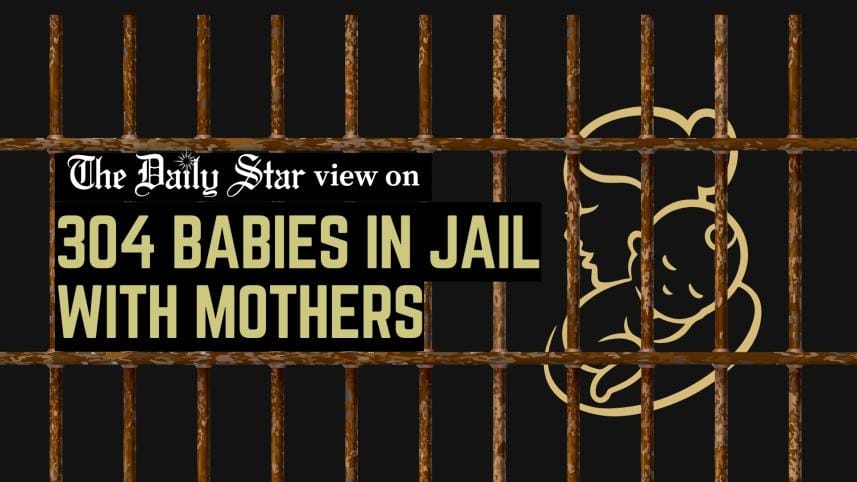Prison is no place for babies

On Sunday, the High Court shed light on a crucial issue that does not get enough attention. Responding to a writ petition, the court issued a rule asking why there shouldn't be regulations to ensure the physical and mental well-being of prison babies—children forced to live in condemned cells with their mothers. The writ was filed by a Supreme Court lawyer, who acted after seeing a news report on a 10-month-old baby living in a condemned cell of Habiganj district prison.
According to the report, published by a Bangla daily on November 30, 10-month-old Mahida has been in the condemned cell since October 26, when her mother Husna Akter was sentenced to death in a murder case by a Habiganj court. Death row convicts are put in condemned cells—where they are locked up and monitored round the clock—until their sentence is executed following a confirmation from the Appellate Division. The condemned cell that the mother-daughter duo is confined to is a 10-foot-by-10-foot room with its only window boarded up, no running supply of water, and no mosquito repellent. They share the room with two other convicts.
It is heartbreaking to see that a baby who should be growing up in a loving, caring environment has been forced to live in such harsh conditions. It is already taking a toll on her health; reportedly, she lost around 2kg in weight within a month of living in the death cell. As there is no telling as to when the Appellate Division will give the final verdict on Husna's sentence, it would be safe to assume that Mahida's ordeal is not going to end anytime soon.
This state of affairs is completely unacceptable. We appreciate that the High Court is holding the government responsible and is demanding an explanation from the relevant authorities in this matter. We also hope that the authorities will look into not just Mahida's case, but also the cases of all 304 prison babies across the country. A child should not suffer for their parents' crimes. If a child must be kept in a prison cell with their primary caregiver, then proper provisions must also be ensured in the prison to cater to their healthy growth. This must be a priority for our policymakers.



 For all latest news, follow The Daily Star's Google News channel.
For all latest news, follow The Daily Star's Google News channel. 
Comments